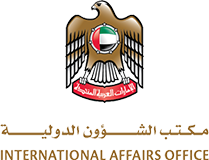
Finale Judges
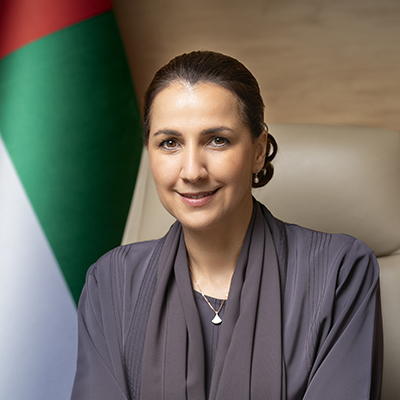
H.E. Mariam AlMheiri
Head of International Affairs Office
Presidential Court
Presidential Court of the UAE since January 6, 2024; and was also appointed in the same month as the CEO of 2pointZero an International Holding Company (IHC) subsidiary.
H.E. AlMheiri served as the UAE Minister of Climate Change and Environment from September 2021 till December 2023, where she spearheaded the United Arab Emirates’ comprehensive efforts to accelerate climate action, safeguard ecosystems, enhance biodiversity and strengthen food security by developing and implementing impactful strategies, policies, and initiatives. Her former official roles included being appointed Minister of State for Food Security (October 2017 – July 2020) and then Minister of State for Food and Water Security (July 2020 – September 2021). In these roles, she led the monitoring of national food stocks and water supply, directed investments in food technology innovation and built international partnerships. She also led infrastructure development to achieve the country’s food security objectives in line with the goals of the UAE Centennial 2071.
H.E. Almheiri has a Master’s and Bachelor’s degrees in Mechanical Engineering from the Rheinisch Westfälische Technische Hochschule (RWTH) in Aachen, Germany.

Rima Al Mokarrab
Chair
Tamkeen
Rima Al Mokarrab is Executive Director of the Strategic Affairs Unit of the Executive Affairs Authority (EAA). The EAA provides analysis and advice on a variety of portfolios to the President of the UAE, His Highness Sheikh Mohamed bin Zayed Al Nahyan.
Ms. Al Mokarrab is on the Board of Trustees of New York University, and on the Board of Trustees of the Emirates Centre for Strategic Studies (ECSSR). Ms. Al Mokarrab also is Chair of Tamkeen, an organization that plans, develops, and delivers projects on behalf of the UAE, and co-founded and currently co-chairs the annual Abu Dhabi Ideas Forum in partnership with the Aspen Institute. She is the Vice Chair of the Board of Zayed University. She previously sat on the Board of the UAE Space Agency.
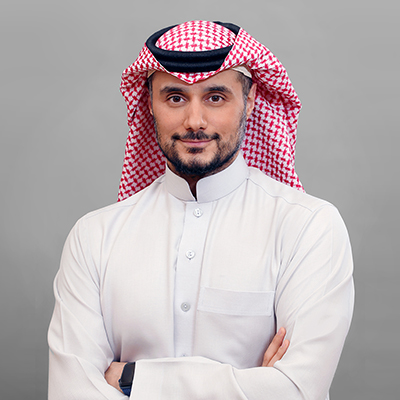
HRH Prince Khaled bin Alwaleed bin Talal Al Saud
Founder and CEO
KBW Ventures
As a figure of business, technology enthusiast, and investor, HRH Prince Khaled bin Alwaleed bin Talal Al Saud is a firm proponent of clean energy, healthy living, and a motivated voice for entrepreneurship.
A member of the Saudi Arabian royal family, Prince Khaled was born in California and spent his youth in Riyadh under the mentorship of his father, philanthropist HRH Prince Alwaleed bin Talal Al Saud, Chairman and founder of Kingdom Holding Company.
Today, with holdings on three continents, Prince Khaled stands at the gateway between the Middle East’s evolving economies and the Western world. As a venture capitalist who views nascent and emerging technologies as the path to alleviating many of today’s pressing global issues, Prince Khaled’s sector agnostic investments in technology span several different disciplines including fintech, agtech, food tech, B2B SaaS, aviation and transportation technologies, energy technology, biotechnology, entertainment and broadcast technologies, and more.
The founder and Chief Executive Officer of KBW Ventures, Prince Khaled works across several tiers and levels of the business. In the real estate and property markets, Prince Khaled serves as Vice Chairman and co-founder of Arada, a UAE-based development company.
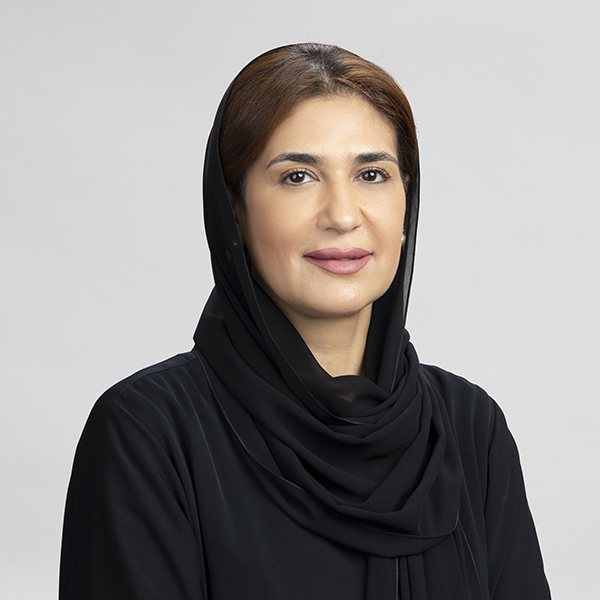
Khuloud Al Nuwais
Chief Sustainability Officer
Emirates Foundation
In Feb 2024, Khuloud received the Arab Women of the Year for Social Development Award from the London Arabia Organization. In 2023, she was selected as one of the 17 women who were profiled during COP28 for tackling one of the 17 sustainable development goals, which addresses hunger and reducing food waste. Named among the ‘Top 20 Most Influential Women in the UAE’ by The National in 2008, Khuloud is credited with playing a pivotal role in establishing the Emirates Foundation in 2005. In 2014, she was profiled as one of UAE’s inspirational leaders and won the Emirates Woman Award for leadership by Dubai Quality Group in 2015.
As Chief Sustainability Officer at Emirates Foundation, she is responsible for developing the strategy that drives the organization to achieve its mission and & monitoring its socio-economic impact as well as establishing high-priority initiatives for UAE leadership. In recent years, she has been tasked to develop the national initiative- ne’ma to tackle food loss and waste reduction across the UAE to achieve the national food security strategy goals through a collaborative approach that engages all sectors across the food supply chain to change current behaviors and practices leading to food waste. She is also supporting the National Projects Office of the Presidential Court in the development of a new textile circularity initiative called Naseej.
Khuloud has 27 years of experience in the private sector and philanthropy, running both operating models — grant-making and incubating new programs and initiatives. Throughout her career, she handled different responsibilities, including establishing different projects focused on establishing the foundation’s flagship programs, such as Takatof for volunteering and Kafaat for leadership and entrepreneurship development.
Khuloud holds a bachelor’s degree in business administration from Portland State University, US, with a major in advertising management and marketing.

Rodger Voorhies
President of Global Growth & Opportunity
The Gates Foundation
Rodger Voorhies is president of the foundation’s Global Growth & Opportunity Division. In this role, Rodger leads the foundation’s efforts to alleviate hunger and poverty for millions of farming families in Sub-Saharan Africa and South Asia by increasing agricultural productivity in a sustainable way; make high quality digital financial services widely accessible to people living in the poorest parts of the world; promote sustainable approaches to gender equality and the empowerment of women and girls; and bring groundbreaking innovations in sanitation technology and new ways to deliver sanitation products and services to people in the developing world. Prior to his current role, Rodger was director of the foundation’s Inclusive Financial Systems program.
Before joining the foundation in 2011, Rodger worked in emerging markets for nearly 20 years. In Sub-Saharan Africa and Eastern Europe, he helped establish and grow successful microfinance organizations with client-driven organizational cultures that delivered innovative financial services to poor households and communities. He was CEO of Opportunity Bank of Serbia, where he managed the bank through a successful turnaround, using data to reach smallholder farmers. He founded Opportunity Bank of Malawi, the first commercial microfinance bank in Malawi, and grew it to become one of the largest providers of financial services in the country using alternative delivery channels (e.g., biometric smart cards, mobile banking). Today, nearly one out of every five Malawi families has a relationship with the bank.
Rodger was a postgraduate student in Organizational Behavior and Sociology at Northwestern University, holds a master’s degree in management from Kellogg School of Management, and a Bachelor of Science degree in business administration from Biola University. Rodger contributes to numerous publications in the microfinance industry and is a former member of the board of Nyika-Vwaza Trust, which is dedicated to conserving the wildlife and habitats of Northern Malawi.
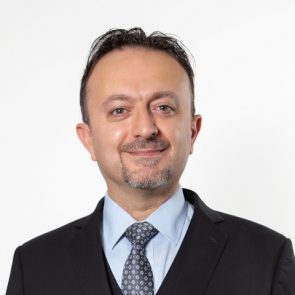
Dr. Shamal Mohammed
CEO
Innovation Oasis - Silal
Dr. Shamal leads the farm innovation program to deploy technologies, advance R&D capabilities, and integrate agronomic knowledge to support local farmers to produce more sustainably and profitably. He is a leading digital agriculture expert with over a decade of experience developing and delivering AgriTech solutions to improve food production and environmental sustainability. He has a PhD in applying geospatial technologies in agriculture (UK). Before Silal, he was a Chief Technical Officer at the Agri-EPI Centre in the UK. He developed and led many national and international Agri-Food Tech and Digital solutions. Dr. Shamal is often called upon to present at high-profile forums and events, including the G20 expert meetings on Climate-Smart Agriculture he attended in Japan (2019) and Saudi Arabia (2020), and he is the author of many reports and scientific articles on the applications of smart technologies in Agri-food sector.

Dr Ismahane Elouafi
Executive Managing Director
CGIAR
Dr. Elouafi is the Executive Managing Director of CGIAR, the preeminent global agricultural and food systems research network. She was previously Chief Scientist at the Food and Agriculture Organization (FAO) of the United Nations, and Director General at the International Center for Biosaline Agriculture (ICBA).
Dr. Elouafi also served as Senior Adviser to the Assistant Deputy Minister, Agriculture and Agri-Food Canada Research Branch (AAFC), the National Manager of Plant Research Section; and Director of Research Management and Partnerships Division at the Canadian Food Inspection Agency (CFIA).
She has served on expert panels and advisory groups, including the Global Commission on Adaptation (GCA), and HarvestPlus; and on the boards of CGIAR, International Food Policy Research Institute (IFPRI), Centre for Agriculture and Bioscience International (CABI), and Canada’s Professional Development Institute. She was member of the Scientific Group for the 2021 UN Food Systems Summit.
As a geneticist, Dr. Elouafi’s work contributed to enhancing wheat breeding. She has advocated for the diversification of food to improve food system resilience, including work on halophytes that had significant impact in countries facing salinity issues. A prolific scientific author, she has contributed to many major publications – including Nature, on Foodomics, the Gaza food crisis and biodiversity.
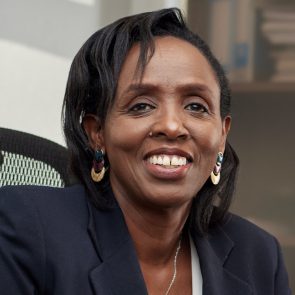
Dr. Agnes Kalibata
President
AGRA
Dr. Agnes Kalibata has since 2014 led AGRA’s efforts in collaboration with public and private partners to ensure a food secure and prosperous Africa through inclusive, sustainable agricultural transformation, improving the productivity and livelihoods of millions of smallholder farmers in Africa. Prior to joining AGRA, Dr. Kalibata was Rwanda’s Minister of Agriculture and Animal Resources from 2008 to 2014. She is the recipient of many prestigious awards including the Yara Prize, now the Africa Food Prize, Honorary Doctorates from the University of Liège and McGill University, and the National Academy of Sciences’ Public Welfare Medal. Over the last two years, she has served as the Special Envoy of the UN Secretary-General for the Food Systems Summit 2021. She sits on various panels, boards, councils and commissions including the Global Commission on Adaptation, the Global Commission on the Economy and Climate, the Global Agriculture & Food Security Program, the Global Agenda Council of the World Economic Forum, among others. She holds a doctorate in Entomology from the University of Massachusetts, Amherst.

Expert
Clinton Global Initiative
Technical & Commercial Judges

Dr. Ryan Lefers
Founder
iyris
Dr. Ryan Lefers is Founder and Head of Plant Genetics at iyris, a leading sustainable agtech company offering easy-to-adopt climate adaptation solutions. Throughout his career, Ryan has focused his efforts on systems that serve to advance water and food security in a sustainable way. Ryan is an expert in covered and open field agriculture systems and the complex interactions between food, water, energy and climate. Ryan’s passion is to serve people and steward the planet through problem solving and innovation.

Stuart Oda
Founder & CEO
Alesca Life Technologies
Stuart Oda is an investment banker turned urban farmer with a passion for innovation and sustainability.
In 2013, Stuart founded Alesca Technologies, an agritech company that develops turnkey vertical farms and precision agriculture solutions to make food production more localized and data-driven. Alesca has been recognized by the World Economic Forum as a Technology Pioneer, SDG Champion for Zero Hunger, and Global Innovator as a leader in the field of controlled environment agriculture, and Stuart is an alumni mentor of prestigious global innovation programs including Stanford StartX, Nvidia Inception, Barclays Capital Unreasonable Impact, Dubai Futures, and Mohammed Bin Rashid Innovation Fund. He has presented on the topic of vertical farming and agritech at the TED World Theater in New York, Majlis Mohamed Bin Zayed Lectures in Abu Dhabi, and UN FAO headquarters in Rome.
Stuart previously worked in the investment banking division of Merrill Lynch and the global emerging markets corporate development team at Dell Computers.
He received his B.A. in Political Science and Business Economics from UCLA.

Muhra AlMulla
Vice President, UAE Investments platform
Mubadala
Muhra Al Mulla is a Senior Associate at Mubadala’s Disruptive Investments platform with over 12 years of experience in the financial services industry. As part of her current role, she specializes in value creation for Mubadala’s portfolio companies by unlocking business development, partnerships, and growth opportunities through leveraging Mubadala’s strong, collaborative, global resources and network. Muhra joined Mubadala in 2014 and was seconded to the Abu Dhabi Investment Office (ADIO) in 2019 as part of the investments team where she spent most of her time building their portfolio investments in the tech industry. Prior to joining Mubadala, Muhra started her career at Deloitte where she spent over 3 years in audit and financial advisory leading assignments for several regional and global MNCs.

Christophe Lalo
Chairman Middle East
Pure Salmon
Christophe Lalo is the Chairman Middle East for Pure Salmon in Abu Dhabi and the CEO of 8F AM Middle East, an impact investing asset manager, based in ADGM, Abu Dhabi. He has been instrumental in setting up 5 companies with Pure Salmon (Global Headquarters) and 8F since he moved from London to the UAE in July 2020. Initially with 3 employees, it has grown now to 40, part of a 300-person group located in the US, Europe and Asia.
Christophe interacts with the private and public sector, with financial institutions as well as local government entities and universities (for the Pure Salmon Academy) to help the UAE with Food Security and build a sustainable agritech land-based RAS aquaculture salmon farm and processing facility in the UAE.
He has a finance background and has held various senior positions amongst others with Société Générale Asset Management (now Lyxor) and Deutsche Bank.
A French citizen, Christophe has worked in Paris, Singapore, Hong Kong, and London. He is now living in Abu Dhabi.

Anne Le More
President and Co-founder
Chefs4thePlanet
A former diplomat at the United Nations, Anne has been in international policymaking for 25 years, notably in the areas of world’s affairs, food security, sustainability, and climate.
Based in New York, Paris, the Middle East and Africa, she has advised global leaders at the United Nations, the World Bank, and other international organizations, working closely with governments, donors, business and civil society. Between 2016 and 2019, she was Chief of Staff and Director of Policy of the UN Environment Programme and a member of the Executive Board where she led on all strategic and operational matters for the organization.
Now Anne continues her global engagement as a senior manager, strategic advisor and public speaker, focusing on the Middle East, notably Saudi Arabia. She works with governments, investment funds, corporates, agri-food tech start-ups and universities, to forge partnerships, advance policy and innovation, and promote investments with a strong focus on sustainability and the agriculture and food sectors.
In 2022-2023, she worked with KAUST, MEWA and Topian, the NEOM Food company, as well as other major Saudi partners such as SALIC and the largest agrifood corporates to conceptualize and launch the ‘Saudi Food Futures’ initiative, a platform bringing together research, policy and innovation to think through the issues of food security in light of Saudi Vision 2030 and create a national agri-food ecosystem in Saudi Arabia
(https://saudifoodfutures.kaust.edu.sa). This paved the way for the Saudi AgriFood Tech Alliance launched in July 2024.
A former United Nations Champion for the transformation of our Food Systems, she is the President and co-founder of Chefs4thePlanet, an international network of prestigious chefs advocating for sustainable gastronomy (https://www.chefs4theplanet.com).
Anne is a huge food and wine enthusiast and is passionate about literature, cinema, nutrition, yoga, and sport. A mother of two, she holds a PhD in International Politics from the University of Oxford, UK.
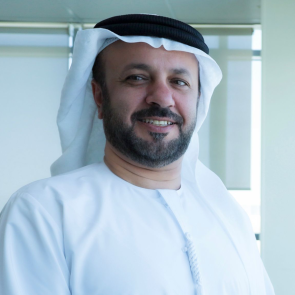
Dr. Abdulmonem Almarzooqi
Advisor to the Managing Director
Elite Agro Holding LLC
A Ph.D. holder in Environmental Sciences, Dr Abdulmonem Al Marzooqi has more than 24 years of experience in Environmental and Agricultural areas at a managerial level. He has established food and agriculture companies in African and North African countries (Morocco, Mauritania, Ethiopia & Sierra Leone), with food production, processing, distribution, Agri technology and security with significant interests both locally and internationally and crops ranging from vegetables and fruits.
He is an ISO 140001 Environmental lead auditor and HSE CAMS certified assessor and verifier. He is also an expert in ISO 26000 social responsibility and represents the UAE government. He has also received awards for excellence and is a specialized graduate in Sustainability from the Dubai Leaders program.Throughout his career, Dr. Abdulmonem has been heavily involved locally and internationally in the following areas:
- Technical. Legal, Market, Financial and Feasibility Studies, Due Diligence and Business planning various investment
opportunities for internal and external stakeholders and government entities. - Design, Reclaim, Development and Construction of large-scale Livestock, Dairy and Agricultural farms including laboratories
and related facilities. - Cultivation, Production, Post-Harvest, Processing and Packaging of fruits, vegetables, field crops, forages and juices according to international standards and best practices including Marketing, Sales and Distribution.
- Introduction and know-how transfer of new agricultural technologies and methodologies.
- Manage different internal and external stakeholders in the
private and government sectors.
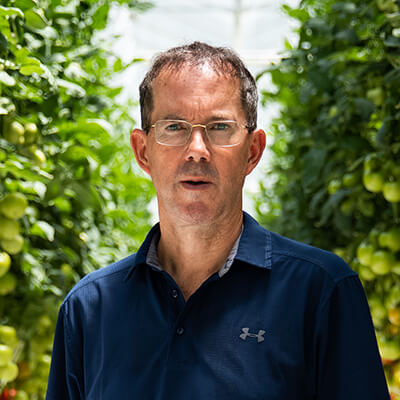
Jan Prins
Chief Grower
Pure Harvest
Jan Prins serves as Head Grower for Pure Harvest Smart Farms since April 2018 and before that, was a consultant for the company starting from December 2017.
He has experienced all aspects of Horticulture and worked in growing, teaching, building, managing, and consulting perspectives in China, Ethiopia, Netherlands, and Turkey.
In 2006, he was the first grower in Ethiopia who exported high quality vegetables to the Middle East. In 2008, Sheikh Mohammed Al Amoudi acquired Jan’s company and under his umbrella, Jan built a company from scratch that was operating 5 farms in different climate levels in Ethiopia, which produced 100 different vegetables, strawberries, and roses. 3 years in, and the establishment was the biggest vegetable exporter in Ethiopia, exporting to 11 countries, and was a major supplier of the US army forces in Afghanistan. After that, Jan built and operated two other farms, and worked as an employee, manager, and co-founder in different greenhouse companies.
Jan’s educational background includes horticulture and management studies from the Erasmus University in The Netherlands.
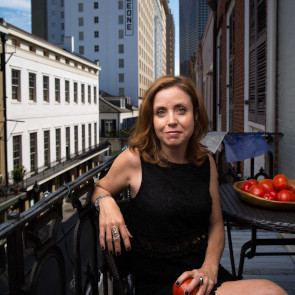
Danielle Nierenberg
President
Food Tank
In 2013, Danielle Nierenberg co-founded Food Tank with Bernard Pollack, a 501(c)(3) nonprofit organization focused on building a global community for safe, healthy, nourished eaters. Bringing together all sides of food issues for critical discussion, Food Tank is a global convener, research organization, and non-biased creator of original research impacting the food system. Danielle conducts extensive on-the-ground research, having traveled to more than 70 countries across the world to document what’s working to help alleviate hunger and poverty while protecting the environment. Her knowledge of global agriculture issues has been cited widely in more than 20,000 major print and broadcast outlets worldwide. Speaking at more than 100 events per year, Danielle has built a worldwide social media following and web following of more than 1,200,000. Danielle has an M.S. in Agriculture, Food, and Environment from the Tufts University Friedman School of Nutrition Science and Policy and spent two years volunteering for the Peace Corps in the Dominican Republic.

Dr. Balaji Vasudevan
AgroBiosciences Chief Scientist and Partner
UM6P Ventures / 16 VC
Dr. Balaji Vasudevan is a Venture Partner at 16VC, Operations and Program Manager at KickStart Venture Services, AgroBioscience Consultant at UM6P Ventures, and a globally recognized thought leader in the food and agriculture sector.
With over 20 years of agritech experience in industry and academia, he is driven by a desire to help companies bring breakthrough agri-food technologies to market that create a better food and agriculture ecosystem.
Dr. Balaji is an advisor/science consultant/SAB member for global agritech companies and VC firms, an editor/reviewer for peer-reviewed journals in the plant science domain, and an OCM member/keynote speaker/panelist/judge in global agritech conferences, organizations, and career workshops conducted by premier societies like ASPB, ASM, and WBF.
He earned his Ph.D. in Plant Biotechnology from Madurai Kamaraj University, India, and did his post-doctoral training at Cornell University, Nobel Research Institute, and Tel-Aviv University.

Femi Moito
Founder and CEO
Innovest Afrika
Femi Moito is the Founder and CEO of Innovest Afrika, a Texas based 501c3 organization, bridging the funding gap for founders of African descent.
At Innovest Afrika, he drives impactful investment strategies to foster innovation for African entrepreneurs. With over 20 years of experience across fintech, venture capital, and consulting, Femi is a seasoned leader in scaling high-growth startups and developing transformative entrepreneurial solutions. He previously held the role of Head of Africa Markets at MAJORITY, a fintech company where he spearheaded strategic initiatives to expand access to financial services across the continent.
Femi is passionate about supporting the next generation of African entrepreneurs, investing in visionary leaders who are building sustainable solutions to address global challenges. He frequently speaks at major industry forums on African innovation and impact investing and has contributed to various reports on advancing entrepreneurship in emerging markets.
Femi holds an MBA from Babson College’s F.W. Olin Graduate School of Business and is committed to enhancing the African tech ecosystem through mentorship, strategic partnerships, and fostering cross-continental collaborations.

Kamal Rasool
Director of R&D
Responsive Drip Irrigation
Prior to joining responsive drip irrigation as Director R&D, Kamal Rasool worked as university graduate researcher at precision agriculture lab, Chungnam National Univeristy, Daejeon South Korea and earned M.Eng., under the discipline of precision agriculture in 2020. Previously he worked in a various countries e.g., Pakistan, Malaysia, Kenya, UAE as irrigation, design engineer and farm manager. He had earned his B.Eng., in agricultural engineering from Pakistan back in 2010.
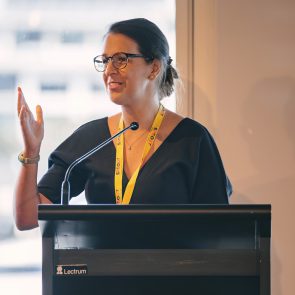
Rebecca Sharpe
Director
Better Earth Ventures
Rebecca, Founder and Director of Better Earth Ventures, brings over 17 years of experience in entrepreneurship and corporate innovation, focusing on advancing agrifood and climate technologies. Rebecca has collaborated with leading accelerators, investors, corporates, and government agencies globally, championing innovative 350+ tech startups to accelerate the development of cutting-edge solutions that address pressing global challenges.
With a track record of running 12 agrifoodtech-specific innovation programs, Rebecca has assessed over 3000 startup applications and worked closely with 120+ global agrifoodtech startups from over 20 countries. This includes supporting companies in their home markets, such as India, Bangladesh, Vietnam, Indonesia, Australia, as well as helping global companies expand from their home markets to Southeast Asia, and Australia.
She has facilitated the development and commercialisation of solutions for agriculture, such as yield optimization, climate-resilient traits in crops, food and nutrition as medicine, and agricultural supply chain transparency. In addition, Rebecca has assisted global agriculture corporations and government agencies in scouting for innovations to advance their innovation and sustainability agendas.
Her previous roles include spearheading large-scale corporate innovation initiatives in collaboration with prominent Singapore Government agencies across diverse sectors, such as food and beverage, tourism and hospitality, education, and manufacturing.
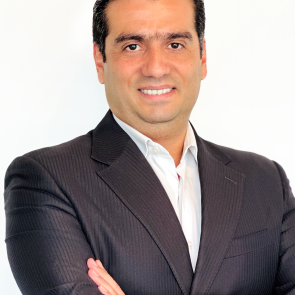
Fadi Naffah
Founder
FNA
Fadi is a seasoned Business Innovation Strategist with a focus on entrepreneurship and a career spanning over 20 years. He has worked extensively with startups and organizations across Europe, Africa, the Middle East, and the Far East, building programs, and providing expert advice, mentorship, and strategic guidance. Throughout his career, Fadi has demonstrated a strong commitment to driving DeepTech innovation, fostering entrepreneurship, and promoting sustainable business practices. His expertise in business strategy, project management, and technology innovation has helped numerous organizations and startups achieve their goals and make a positive impact in their respective industries.
Fadi’s professional journey includes various roles in software development, ICT project management, and economic development programs. He has managed multi-million-dollar portfolios and numerous projects simultaneously, demonstrating strong leadership and project management skills. In addition, Fadi is an active Business Mentor and Advisor, working with organizations such as EIC, EBN, Stanford Seed, MassChallenge, World Business Angel Investment Forum, InnORBIT, InnoRate, The Purpose Alliance, Mowgli Foundation, and Tony Elumelu Foundation. Fadi holds a Master of Science in Computer & Telecom Engineering, and an Executive MBA from ECSP Europe.
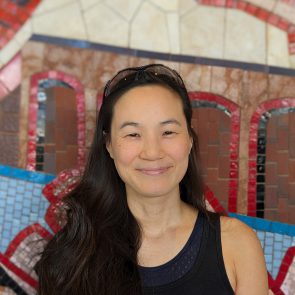
Dr. Jennifer Tung
Life Scientist
United States Environmental Protection Agency
Dr. Jennifer Tung has over 10 years of life science research experience on topics ranging from bat behavioral patterning to tumor angiogenesis. Having established her expertise in cellular agriculture while conducting research for Finless Foods and Upside Foods, Dr. Tung is now a Life Scientist for the United States Environmental Protection Agency. Dr. Tung earned her Ph.D. in Cellular, Molecular, and Biomedical Studies from Columbia University and has a B.S. in Biology from the University of Notre Dame. Her academic and professional background demonstrates a deep commitment to elevating and advancing society through technology, especially as it relates to food security and environmental conservation. Although Dr. Jennifer Tung currently works for the USEPA, she is participating in this event in her personal capacity and not as a representative of the Agency. Her participation in this activity is not intended to imply endorsement or sanction by the USEPA or the US Government of her, her work, this FoodTech Challenge event, or the organizations hosting this event.
Dr. Jennifer Tung’s participation in this activity is not intended to imply EPA or the US Government endorsement or sanction of her, her work, this organization, or this event.

Dr. Amahnui George Amenchwi
Post Doctoral Fellow
Alliance of Bioversity International and CIAT
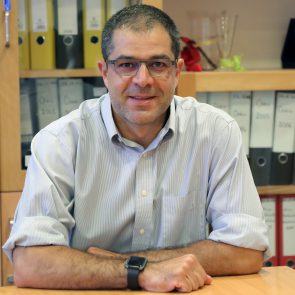
Dr. Mohamad Abiad
Professor of Food Processing and Packaging
American University of Beirut
Dr. Mohamad Abiad is a Professor of Food Processing and Packaging at the Department of Nutrition & Food Sciences and the Director of the Laboratories for the Environment, Agriculture, & Food (LEAF) at the Faculty of Agricultural and Food Sciences, American University of Beirut. He also holds an adjunct faculty position at the School of Packaging, Michigan State University, East Lansing, MI, USA.
Dr. Abiad is also the Senior Advisor for the Lebanese Minister of Environment, and a member of several Ministerial committees, including the National Committee for the Central Public Health Laboratory and the National Committee on Food Safety at the Ministry of Public Health, Chair of the Scientific Committee Assessing Grains at Beirut Seaport following the explosion of August 4, 2020, and a member of several National Committees for Lebanese Standards at the Ministry of Industry’s LIBNOR.
Dr. Abiad holds a Bachelor of Engineering, an MBA, a Master of Science in Engineering, and a Ph.D. in Food Process Engineering. Dr. Abiad is a Lifetime Certified Packaging Professional (CPP-L) from the Institute of Packaging Professionals and a Certified Environmental Sampler (CES). He is Certified by the Better Process Control School on Canned Foods, Principles of Thermal Process Control, Acidification and Container Closure Evaluation, and PCQI Certified by the Food Safety Preventive Controls Alliance.
Dr. Abiad is a member of several professional organizations, including the Institute of Packaging Professionals; the Institute of Food Technologists; the International Society of Food Engineering; the Food Safety Alliance for Packaging; the Registry of International Environmental Samplers, as well as the Order of Engineers and Architects.
Dr. Abiad’s research interests include investigating food waste recycling, packaging design, innovation, and product development. Dr. Abiad is well-published, with more than 60 publications in international high-tier peer-reviewed journals, book chapters, and reports.
Dr. Abiad has more than 20 years of consulting experience in the agro-food industry, working with private companies in Lebanon, the Middle East, & the North African region. He has also worked with several funding programs, including the European Union, PRIMA Horizon 2020, USAID, FAO, UNDP, and ESCWA. He has organized over a dozen capacity-building workshops on various topics related to the food industry, food waste and loss and participated in various international conferences presenting his research.
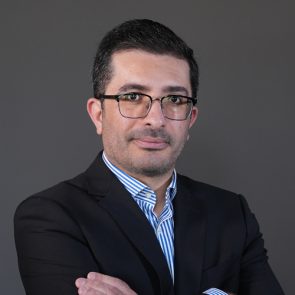
Montasir Qasymeh
Associate Provost
Abu Dhabi University
Prof. Montasir Qasymeh is the Associate Provost for Research, Innovation, and Academic Development at Abu Dhabi University (ADU), where he has demonstrated exemplary leadership in advancing research, entrepreneurship, and innovation. Under his stewardship, ADU has established the region’s first quantum computing laboratory and the Abu Dhabi Graphene Center, the university’s first industrial research facility. Prof. Qasymeh has been instrumental in attracting high-tech companies to the university, facilitating technology transfer, and supporting the formation of startups based on ADU’s patented technologies. Furthermore, he has led the establishment of two specialized research institutes: the AI and Emerging Technologies Institute and the Sustainable Futures Institute, further enhancing ADU’s reputation as a hub for cutting-edge research and development. A distinguished inventor with 16 U.S. patents, Prof. Qasymeh has made substantial contributions to advancing technology transfer, fostering startup ecosystems, and improving research productivity and quality metrics. Additionally, he serves on the advisory boards of several small and medium-sized enterprises (SMEs), providing his expertise to drive innovation and promote growth in the private sector.
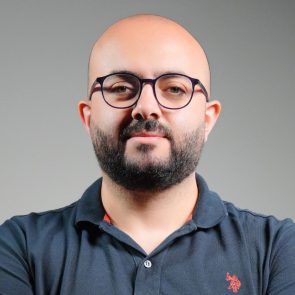
Nader Aboulhosn
Program Manager
Sheraa
Nader is an entrepreneur with a proven track record, having played key roles in founding and leading notable startups like Zyda and SmartCrowd.ae. He specializes in crafting innovative business models and solutions that tackle legacy challenges, helping businesses stay ahead in a rapidly evolving landscape.

Olaide Olawoye
Agribusiness Hub Manager
International Institute of Tropical Agriculture
Olaide is a dedicated Agricultural Economist with extensive expertise in rural and agricultural development. He holds advanced qualifications in Agricultural Economics, coupled with experience in research, project implementation, and stakeholder engagement. Currently, he leads the Agribusiness Hub under the IITA YAS Project, where he coordinates training and enterprise support for young agropreneurs.
Olaide’s previous roles include Market Development Officer with the IFAD/FGN Value Chain Development Programme, where he facilitated market linkages, capacity building, and value chain financing, achieving significant impact across multiple states in Nigeria. Proficient in data analysis, supply chain management, and digital monitoring tools, he combines technical know-how with a passion for empowering agricultural communities.
Driven by values of integrity and innovation, Olaide excels in fostering partnerships and delivering sustainable solutions in agribusiness. His global collaborations with organizations such as IITA, IFAD, and USAID highlight his commitment to advancing agriculture in Africa.

Ryan Lee
Venture Capitalist
AgFunder
Ryan is part of the investment team at AgFunder, a global deeptech VC headquartered in Silicon Valley with offices in London and Singapore. Rooted in agrifoodtech, biotech, climate and AI, we invest at the frontier of human progress to transform the world’s biggest industries. With a background in environmental engineering and an alumnus of the NUS Overseas College (NOC) program (Singapore’s top entrepreneurship program), Ryan has a unique combination of technical expertise and hands-on startup experience.
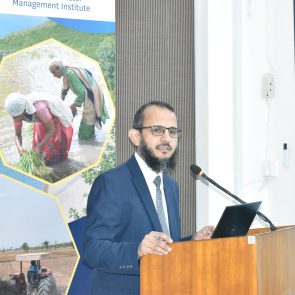
Dr. Abd-ur-Rehman Cheema
Regional Researcher and Water Governance Specialist
International Water Management Institute
Dr. Abd-ur-Rehman Cheema is an esteemed expert in sustainable development, agriculture, and climate-resilient food systems with over a decade of experience spanning national and international landscapes. Currently serving as a Regional Researcher and Water Governance Specialist at the International Water Management Institute, Dr. Cheema spearheads initiatives addressing food security, water resource management, and climate adaptation in vulnerable regions.
Dr. Cheema’s academic and professional journey reflects a deep commitment to leveraging innovative technologies and sustainable practices for tackling global food security challenges, particularly in arid and low-income settings. His contributions have influenced policy reforms, institutional capacity building, and the integration of cutting-edge solutions to enhance agricultural productivity and resilience.
With a PhD in Development Studies and multiple fellowships at prestigious institutions such as the University of Oxford, Dr Cheema brings a unique blend of research rigour and practical experience to the FoodTech Challenge. His passion for transformative innovation and his ability to bridge academia and real-world application positions him as a valuable judge in identifying groundbreaking solutions to global food security challenges.

Camarade Nshimiyimana
Research Associate and Food Technologist
International Potato Center
Camarade Nshimiyimana is a passionate food scientist with over seven years of experience researching food science and technology. He is a master’s graduate from Wageningen University & Research, and he has worked on initiatives addressing food safety and quality issues in the global food value chain. He also attended the University of Rwanda’s Bachelor of Science in Food Science and Technology program, where he graduated with honors.
Camarade presently works as a Research Associate-Food Technologist at the International Potato Center. He conducted a number of projects intended to eliminating micronutrient deficiencies and poverty by increasing the value of orange-fleshed sweetpotato, which is high in vitamins A, B, C, and E, as well as minerals like as iron, zinc, and potassium. He has previously performed research studies in a number of food system domains, including dairy, meat, microbiology, food safety, and quality management. He is committed to creating a sustainable food system by developing an integrated approach.
Beyond food research, he excels in project management, having earned seventeen certificates from prestigious institutions such as Rice University, University of Illinois Urbana-Champaign, Rutgers University, University of Colorado Boulder, University of California Irvine, and the University of Virginia.



